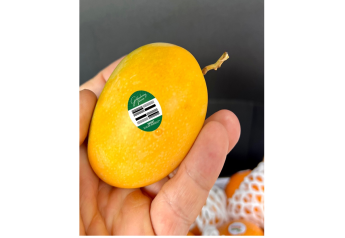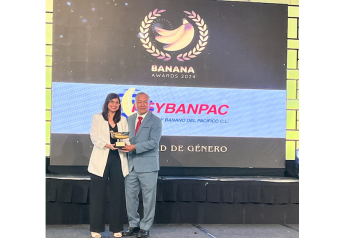Stealth SEC Climate Rule Could Create Chaos Down on the Farm

Remember this spring when the USDA dangled more than $2 billion worth of grant money so that someone might discover how to raise climate-smart commodities? Think of this as the multibillion dollar carrot to “encourage” producers to find a more climate-friendly approach to their work.
Click here for the details about USDA’s $2.8 billion climate-smart investment in 70 projects.
Ironically, during the time that the USDA was playing the role of good cop in this social and political drama concerning the fate of our planet, another bureaucratic agency was quietly making moves to fulfill its role as the bad cop. On March 21, 2022, the Securities and Exchange Commission proposed a rule that would require publicly held companies to provide extensive climate disclosures, including measured impacts for their entire supply chains.
So there it is—“their entire supply chain.” That’s the stick, a big stick, with potentially big consequences for those involved in the value chain—all the way down to the farm gate. Although farmers and ranchers are not public companies and, therefore, are not required to report directly to the SEC, the obligations to their regulated customers could be enormous. Those customers—examples include Walmart, Kellogg’s, Pepsi-Co and Levi Strauss—will be under enormous social and financial pressure to significantly reduce their scope 3 greenhouse gas emissions, which are emissions produced by activities occurring upstream and downstream in the value chain.
Direct Impact
The proposed rule’s expansive reporting requirements for scope 3 greenhouse gas emissions will directly affect farmers’ and ranchers’ operations. That’s because public companies must account for and disclose scope 3 greenhouse gas emissions under many—if not most—circumstances. In a real-world scenario, General Mills would have to monitor and manage all the greenhouse gas emissions that are part of its supply sheds. It all rolls downhill from the box of Wheaties at the supermarket to the General Mills production facility to processing mills and the grain elevator to the Kansas wheat farmer.
The SEC claims this requirement for greenhouse gas emissions disclosures would “provide investors with information useful in decision-making as an investor assesses a registrant’s exposure to and management of climate-related risks—and in particular, transition risks.” When mega investment firms such as BlackRock openly tout how a climate-first mantra affects their investment preferences, this rule is only going to make the job of picking winners and losers that much easier.
Because this “ruling” did not originate within USDA, the halls of Congress or even an executive order from the pen of President Joe Biden, the proposed “rule” has flown under the radar of mainstream agriculture for the most part. Originally, the SEC only gave farmers and the industry 39 days to review the proposal, and it made public comments due by May 20, 2022. After facing public pressure, the SEC extended the deadline to June 17, 2022. Significant comments and potential challenges could delay the proposal but are unlikely to derail it.
Whether you are arguing the merits or the maliciousness of this move by the SEC, one thing is for sure—what is happening is unprecedented. Farmers and ranchers have never been subjected to SEC oversight. Farmers do not have teams of compliance officers or attorneys dedicated to handling SEC compliance issues. Even providing the most basic information is going to require additional time and resources.
Ready Or Not
The bottom line is that whether small, medium or large in size, the vast majority of farming operations in the U.S. are not prepared to comply with regulations of this magnitude. As proposed, this SEC rule has the potential to require that each farming operation provide very detailed information that currently is not captured anywhere else—down to the gallons of fuel put into each piece of machinery and each machine’s emissions.
This requires an entirely new level of data diligence. It may be a bridge too far—at least in the short term. According to According to a March 2021 survey done by Farm Journal, only 37% of farmers use data software packages for farm management. And 41% of farmers have two years or less of both planting and harvest data. The rest still were trapped in the past and reliant on pen, paper or the oh-so-popular Microsoft Excel spreadsheet. What makes this so daunting is the fact every link in the farmer’s supply chain will need to chime in with relevant data related to the production of a crop or a particular field that grows the said crop. The retailer spreading fertilizer will need to provide as-applied data and potentially the amount of fuel it took to apply the product. Even the trucking firm picking up grain and delivering it to the local elevator could be on the hook to relay just what it took energy-wise to get the grain from the farm to the elevator.
It’s Really Upped The Ante
Even nearly three decades into the era of precision farming, farmers have never had to deliver a digital manifest like this. The data the SEC wants go far beyond the basic yield map and grid soil test. Every field activity, every pound of fertilizer, every kilowatt of electricity and every drop of fuel are now part of the equation. For years, farmers have had the luxury to adopt technologies according to how comfortable they felt with these new tools. Those days may be gone. Companies may be forced to purchase only from farmers who can easily provide such information. No data, no dice. It’s as simple as that.
Although this rule may have been intended to save the planet, it may very well cripple farmers’ and ranchers’ ability to feed the very people on it. Welcome to the world in which we now live.







